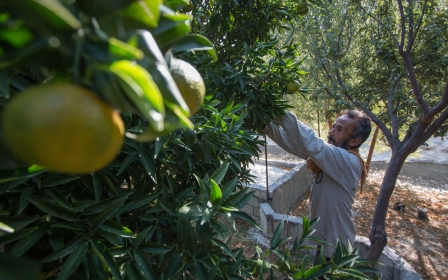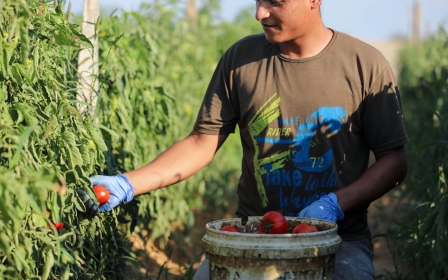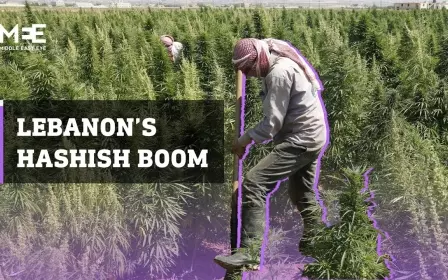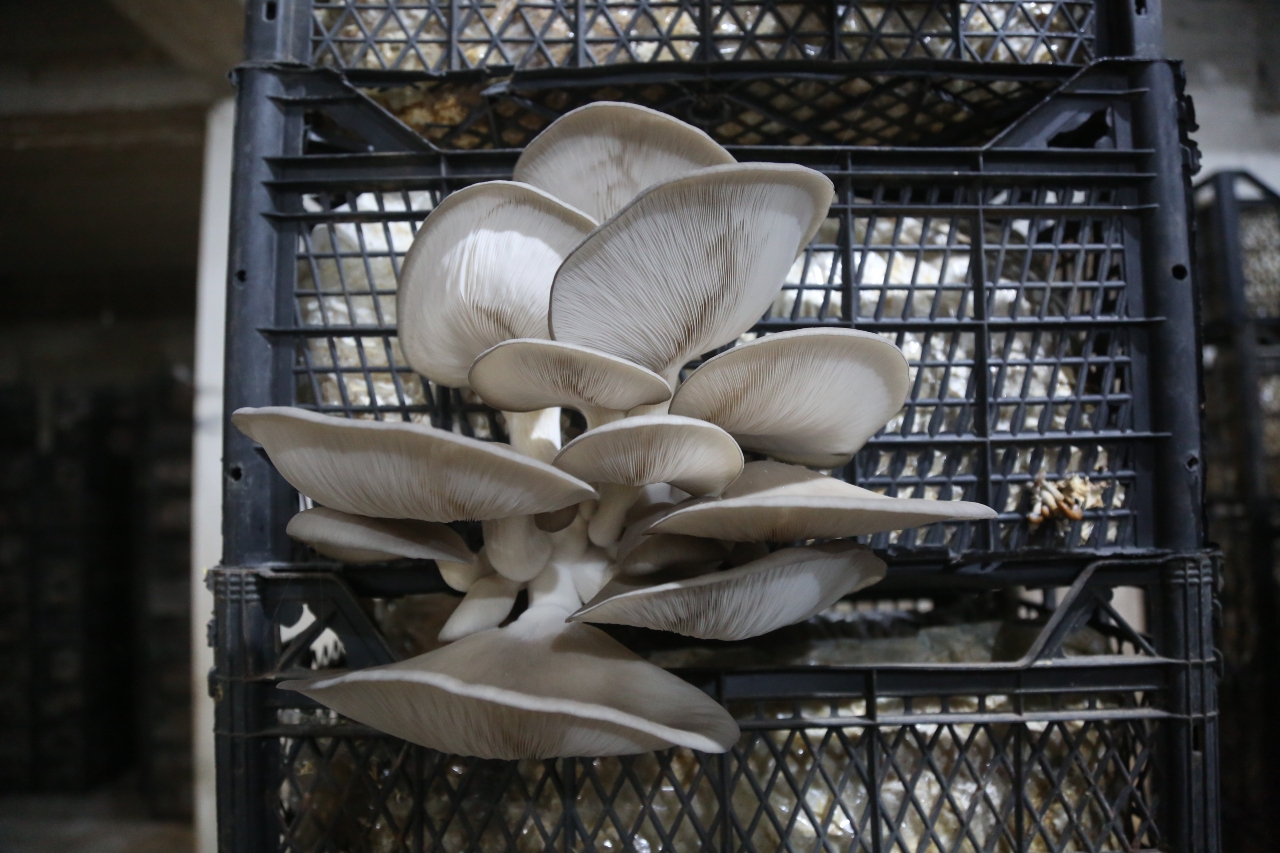
In pictures: Giant oyster mushrooms bring hope and work to displaced Syrians
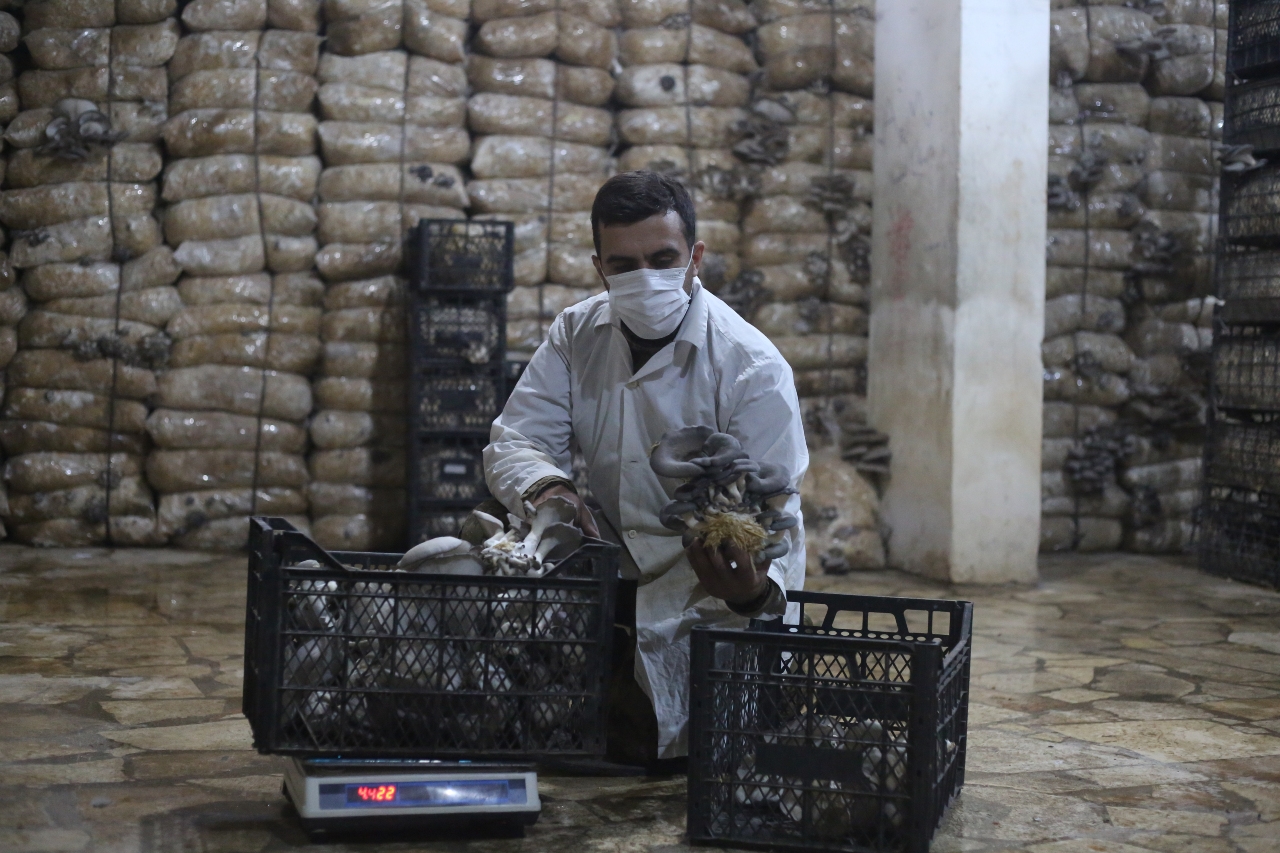
The Al-Amal (Hope) farm in the countryside of Syria's Aleppo Governorate produces 300kg of oyster mushrooms every week.
One kilogramme of mushrooms is sold for $1.35, with buyers often considering it as a meat substitute due to its low price (All photos by Ali Haj Suleiman)
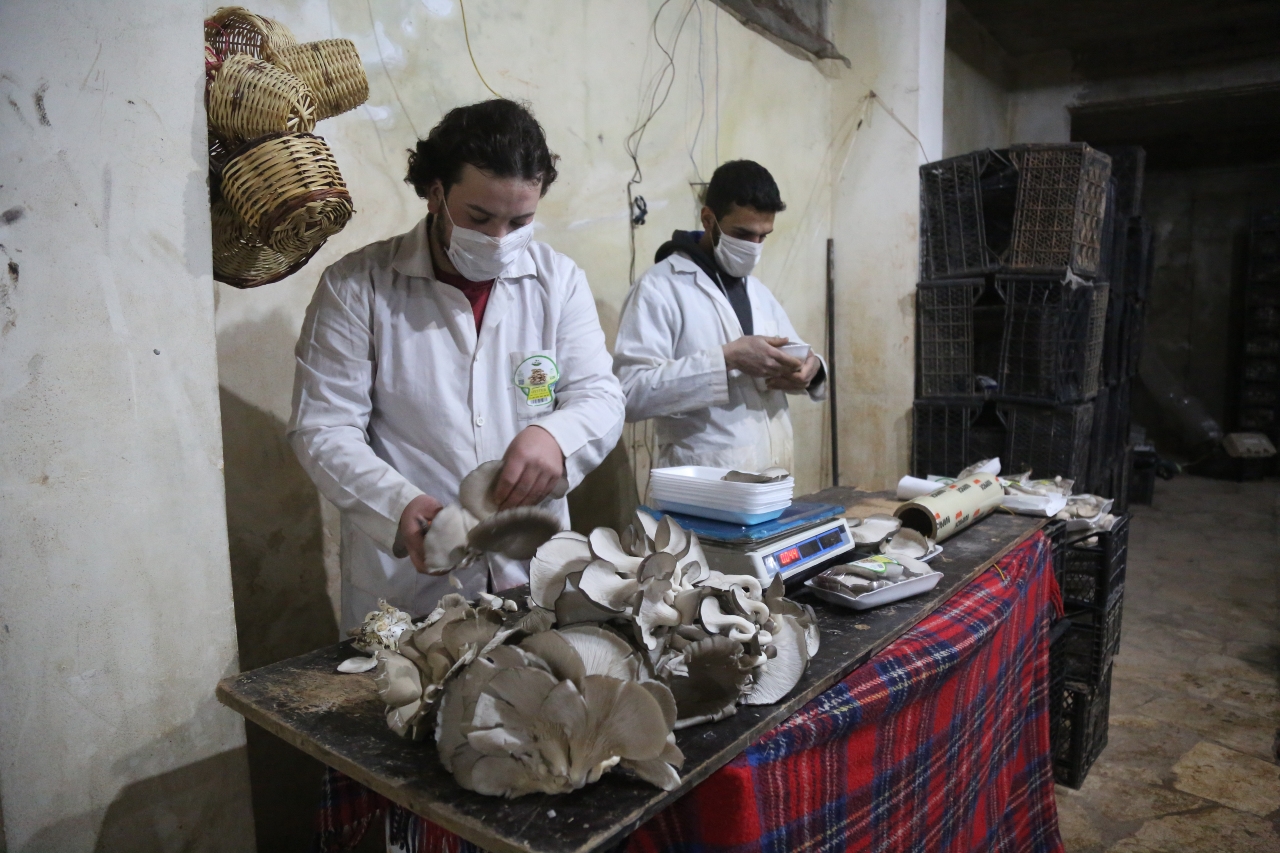
Many of the workers are originally from Eastern Ghouta. During the siege of the area by pro-government forces, residents had learnt how to cultivate the mushrooms as a vital food resource.
Having been displaced to the north of Syria, many of the workers used the experience to create the profitable project, which also secures job opportunities for young people.
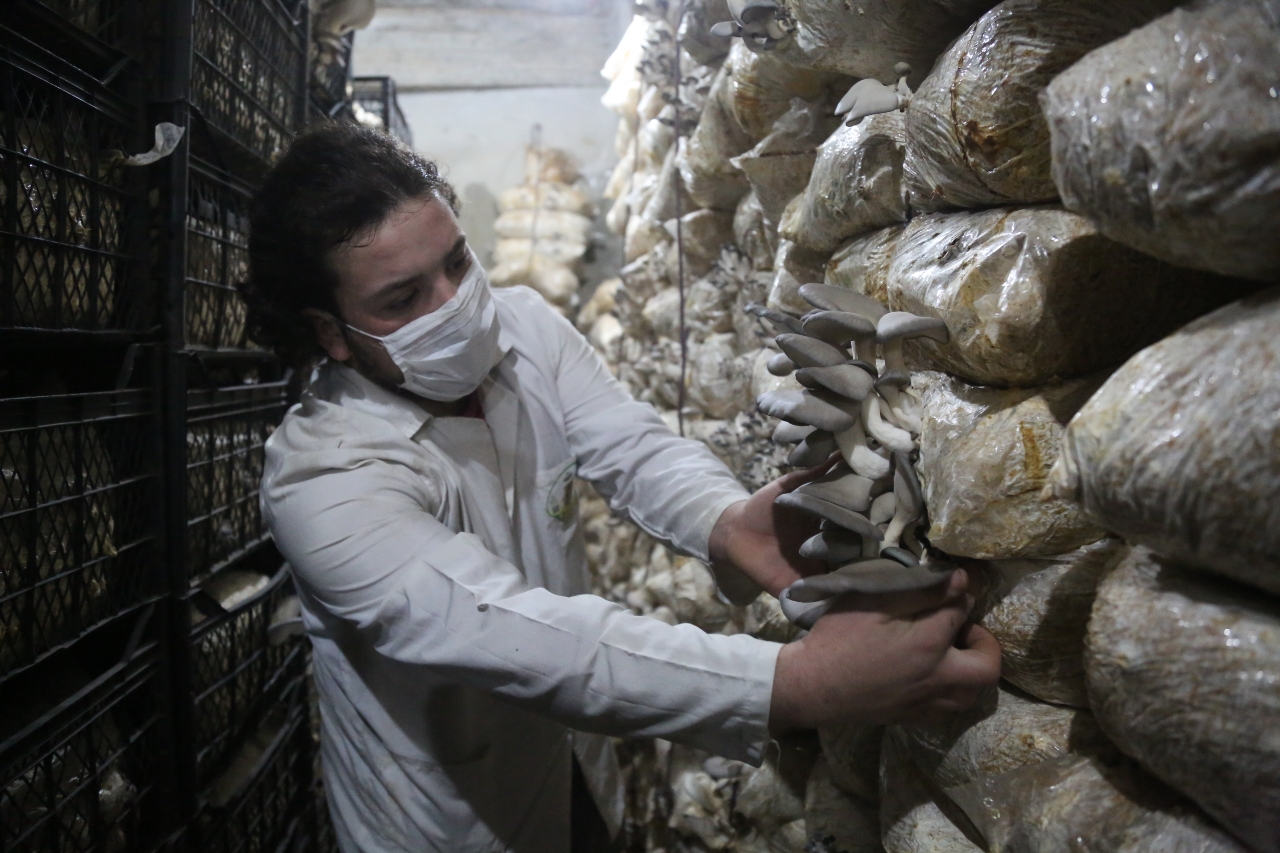
Farmworker Mahmoud Juha, pictured, says: "During the siege we underwent a training course on how to grow mushrooms, and I started growing mushrooms in my house in small quantities.
"Then I was displaced so I decided with some of my friends to start our own project to grow mushrooms in northern Syria."
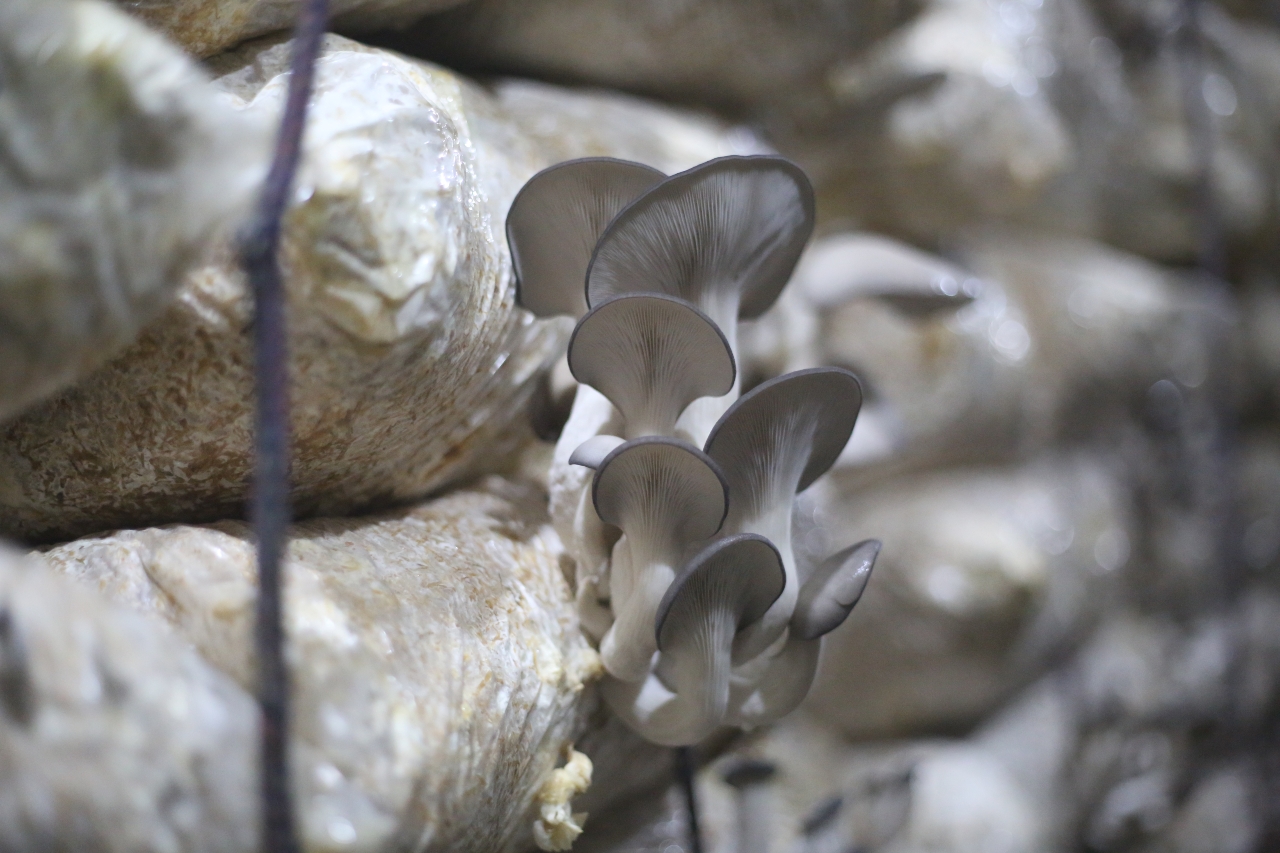
"We bought a small number of mushroom seeds and planted them to measure the success of the project, and the quantity that we can put on the market, and our project succeeded and we expanded it," said Juha. "This project provides a source of livelihood for six families."
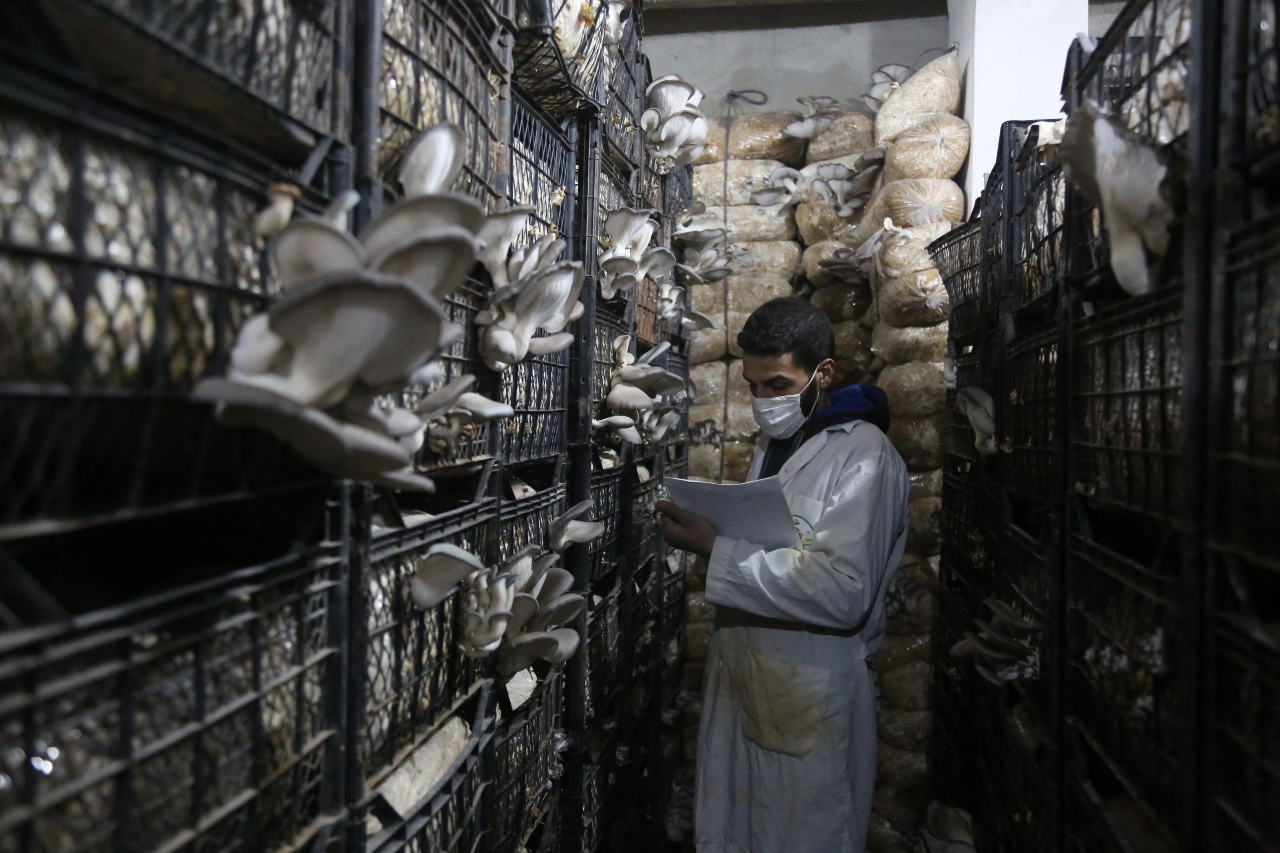
Farmworker Muhammad Bakdash, pictured, says: "Oyster mushrooms are produced in several stages: we start using dry herbs and wet them with water, put them in boxes inside a room, and subject them to pasteurisation and sterilisation by steam for a period of twenty four hours."
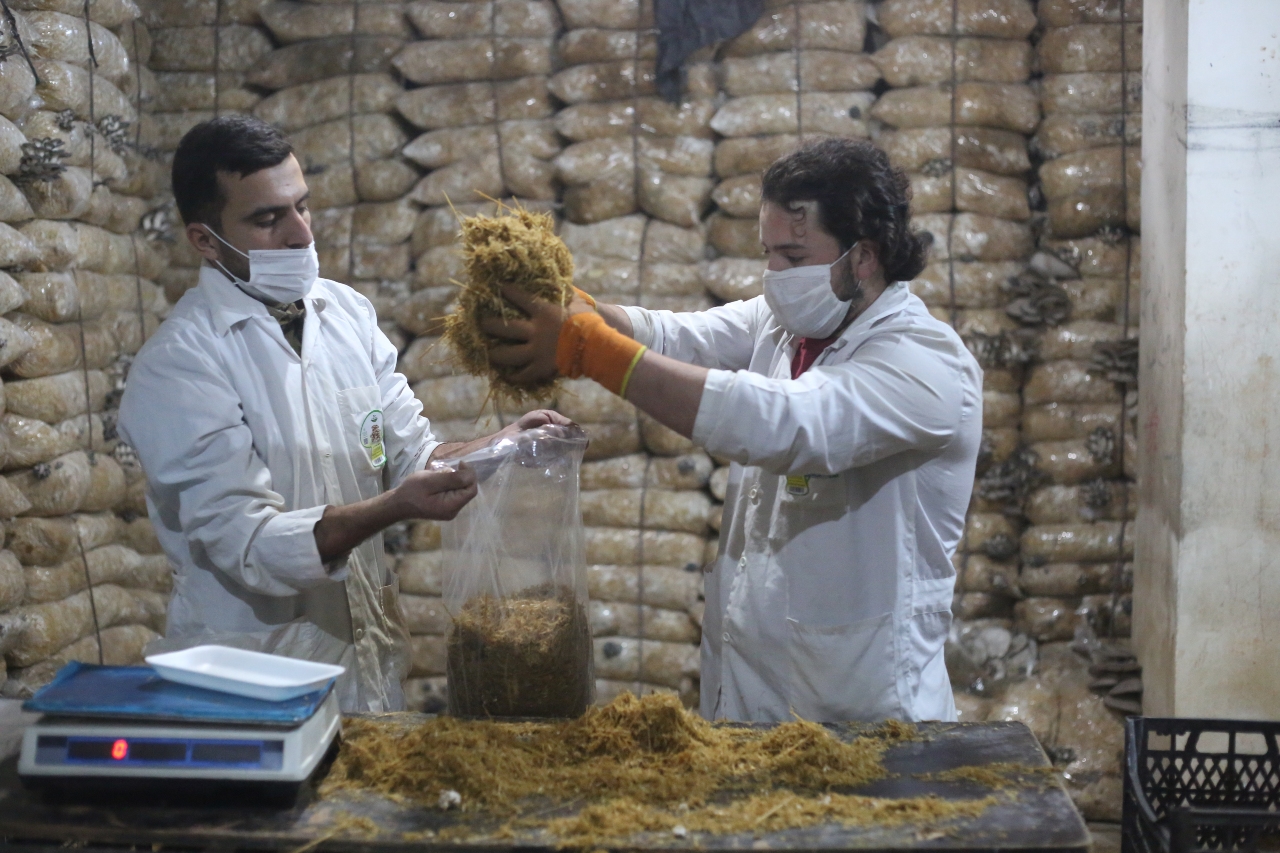
"After that we cool and reduce the temperature of those sterilised dry herbs, then we put them in small bags, and then we plant the seeds inside them," says Bakdash, who was also displaced from Eastern Ghouta.
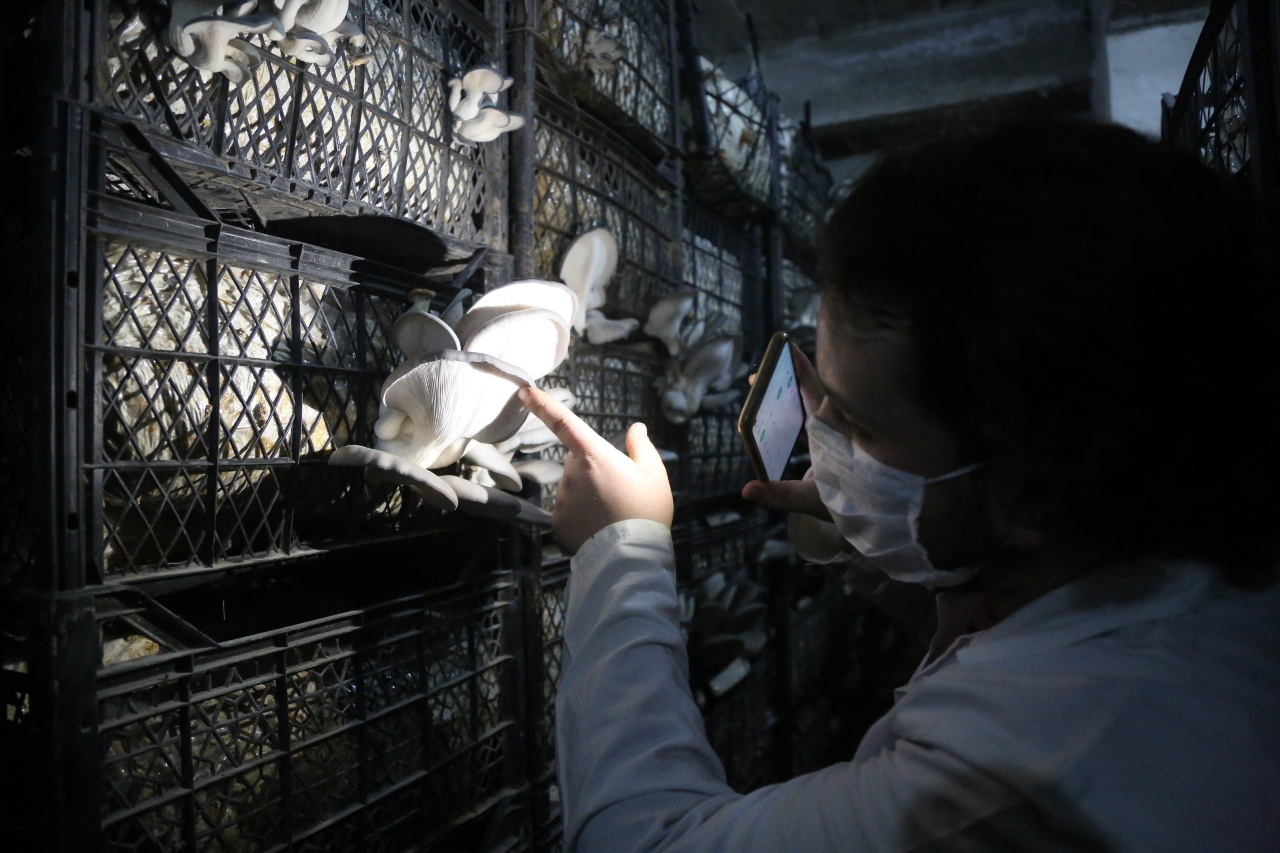
"The seed incubation period is up to twenty days, and after its expiration, the sprouting phase of the oyster mushrooms begins," says Bakdash.
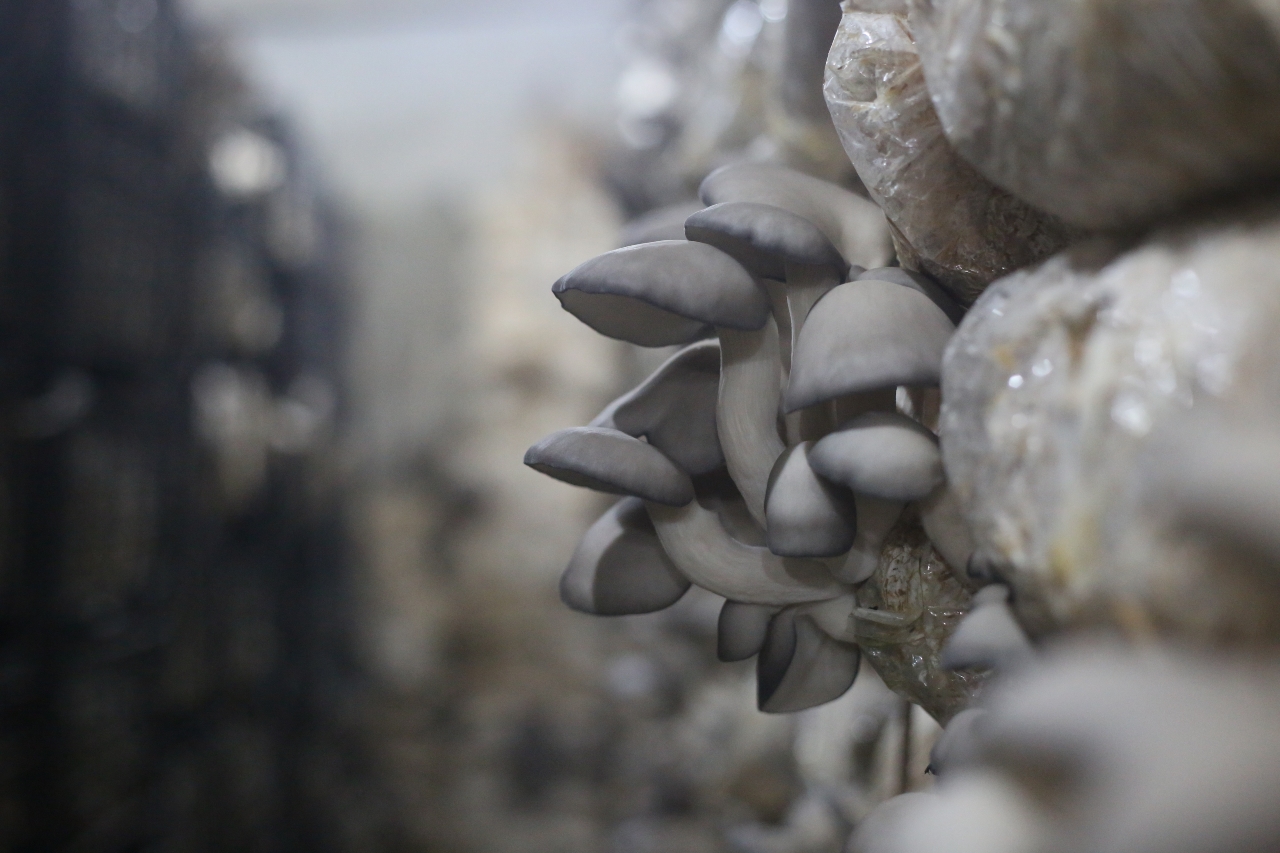
The Nawat Centre for Scientific Studies, which was established in Eastern Ghouta in 2013, helped people to learn how to grow the mushrooms.
Strains of mushrooms, of which the centre holds 35, were brought from Eastern Ghouta to Aleppo to help set up the farm.
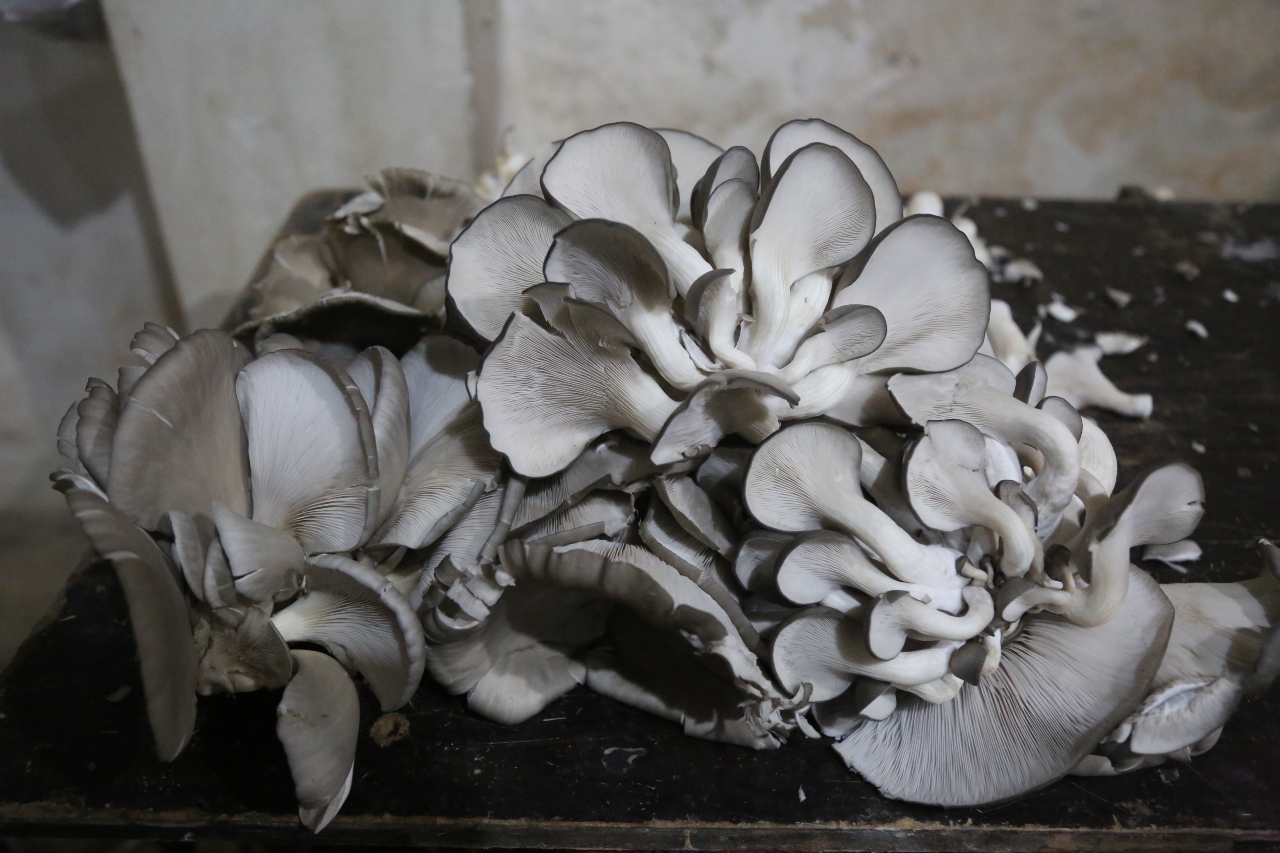
Mushrooms are not only a food substance, but can be used in the pharmaceutical industries and in furniture as an alternative to wood.
Their cultivation also contributes to the restoration of the environment by restoring some species in existing forests and reviving soil and agricultural production.
This article is available in French on Middle East Eye French edition.
Middle East Eye delivers independent and unrivalled coverage and analysis of the Middle East, North Africa and beyond. To learn more about republishing this content and the associated fees, please fill out this form. More about MEE can be found here.


